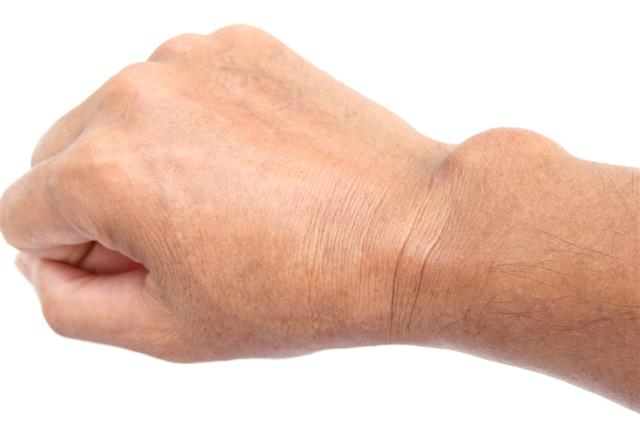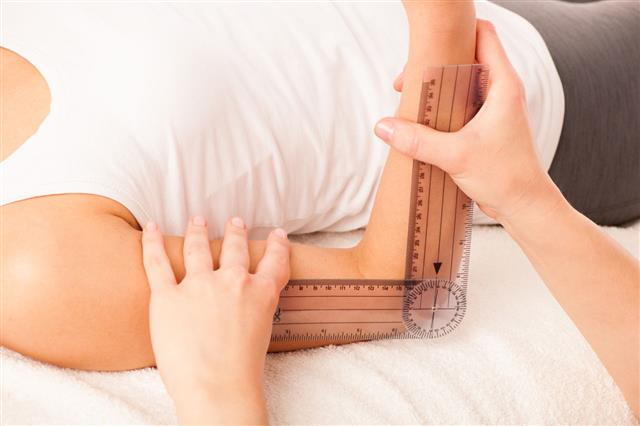
Are you worried because of constant joint pain? It can be due to calcium deposits in joints. Here is an article which explains the causes of accumulation of calcium in joints. The present article can be helpful in alleviating the pain and discomfort caused by calcium deposition. Read on to know the remedies…
Everyone of us knows about the benefits of calcium, one of the most important minerals. Calcium is a vital element that is required by the body for various functions. It is required for healthy teeth and strong bones. But do you know about the possible sites of calcium deposits in the body, the effect of accumulation of calcium and the various treatment options that are available for dealing with the deposits? The following section provides information on who are more likely to suffer from calcium deposits and how the condition is treated.
Accumulation of Calcium in Joints
Calcification, building up of insoluble calcium salts in your joints leads to severe joint pain, degeneration of the joint and restricted movement of the joint. Although joint pain due to calcium deposition is common, calcium can get deposited in arteries, kidneys, heart valves, nerve sheaths, gallbladder (as stones), glands, eyes, skin, arterial walls, middle ear, and even in the brain. Calcium settling in and around the joints gives rise to arthritis. Accumulation of calcium crystals around the joint can cause sudden attacks of inflammation and pain. ‘Cartilage calcification’ is also known as ‘chondrocalcinosis’.
Calcium salts stick to the synovial membranes or moving surfaces of a joint. The joint becomes inflamed and your movements become very painful. Due to calcium build-up, mobility of the joint decreases. Finally, the deposits on the two joint surfaces come together and undergo the process of fusion, called ankylosis, which results in fusion of the joint. When this stage is reached, the person does not experience any pain; because no more movement in the joint is then possible.
Causes
The exact cause of calcium deposits in joints is not yet known but, according to the study reports, many factors can contribute to this condition. One of the most important factor is changes in the process of calcium absorption in your body. Hormonal imbalance and a change in the level of vitamin D affect the process of calcium absorption. Vitamin D helps absorb calcium. Excess vitamin D in your body can lead to absorption of more calcium. Your body may then exhibit hypercalcemia (high blood calcium levels) symptoms. Dysfunction of the thyroid and parathyroid glands is also responsible for too much calcium in the blood. Scarcity of Vitamin K or magnesium in your diet may end up with a calcium problem.
Calcium deposits in the subcutaneous and periarticular (surrounding a joint) tissues do not occur due to excess dietary calcium. When calcium is consumed in excessive quantities, it is not absorbed but it is released from the body along with fecal matter. You may find it surprising; but it is a fact that people with calcium deposits are actually as calcium deficient as people who are losing bone mass.
Joint pain, inflammation, restricted movement of the joints, kidney stones, bone spurs, constipation, digestion problems and dryness of mouth are some of the main calcium deposit symptoms. Excess calcium in the body increases the risk for prostate cancer and congenital birth defects. Too much of calcium in a lactating mother can severely affect the health of the newborn infant. An X-ray can confirm the diagnosis. Calcium deposits in finger joints, wrists and knee joints are very common and are referred to as ‘Pseudogout’ because the signs and symptoms are like gout, a type of arthritis wherein deposits of uric acid in joints lead to severe pain.
Treatment
The treatment for calcium deposits in joints may vary according to the underlying cause and the severity of the symptoms. Medication, hemodialysis and surgical removal (in severe and rare cases) are the main options available but these options cannot prevent new deposits from forming in the future.
Doctors recommend anti-coagulant medications to reduce the size of small deposits and anti-inflammatory drugs to decrease the pain caused by accumulation of calcium near joints.
It is suggested that while taking calcium supplements, you should take an easily absorbed form of calcium, such as calcium citrate or calcium lactate. You are expected to divide the dose. Absorption of calcium is best if you don’t take all your calcium at once.
Calcium crystals deposits can be seen in up to 4% of adult population, at some time during life. Aging worsens the problem and almost 50% of people in their 80s will demonstrate evidence of such deposits on X-ray.
Ibuprofen, naproxen, and indomethacin are the commonly prescribed non-steroidal anti-inflammatory drugs to reduce joint swelling and pain; but these may increase the risk for damage to the stomach, potentially leading to ulcers in certain patients.
Using COX-2 selective NSAIDs such as celecoxib or valdecoxib or the partially COX-2 selective drug meloxicam is safer. Corticosteroids are also administered in various forms. Colchicine is considered good for acute flares. Surgery to remove calcium deposits is recommended only in case of severe calcification.
You should not stop consuming foods that are rich in calcium. Calcium is an essential element and restricting the intake of calcium does not prevent calcium deposition. In fact, lack of calcium in diet promotes calcium deposition. Moreover, lowering the intake of calcium can lead to serious health complications.
Certain healthy changes in diet and lifestyle can prevent accumulation of calcium in joints. Avoiding smoking, drinking plenty of water, following balanced and healthy diet, exercising regularly, avoiding stress, etc. help maintain a perfect hormonal balance. Hormones in the body promote proper functioning of organs and bodily systems. This in turn helps prevent calcium deposition in the body. This HealthHearty article is for informative purposes only. It provides general guidelines and should not be used as a replacement for expert medical advice.




